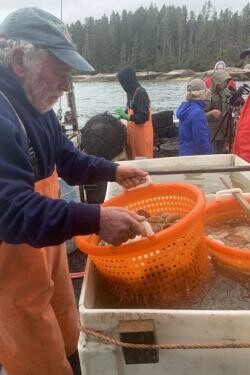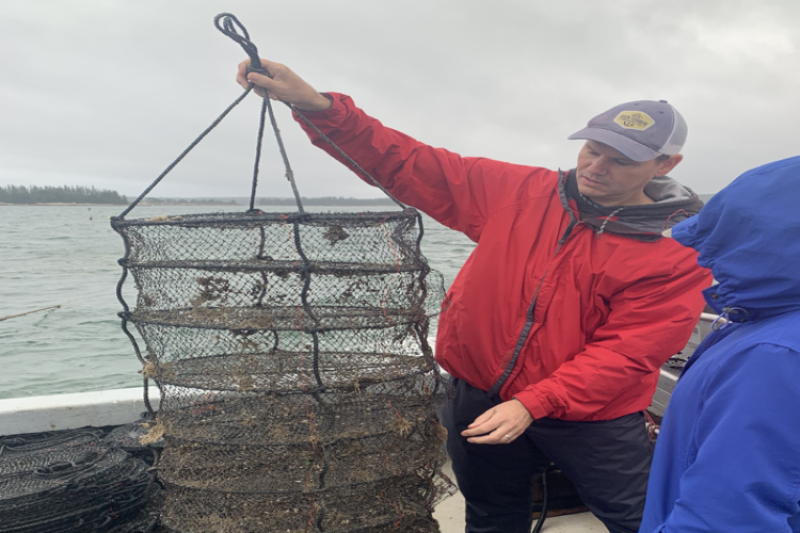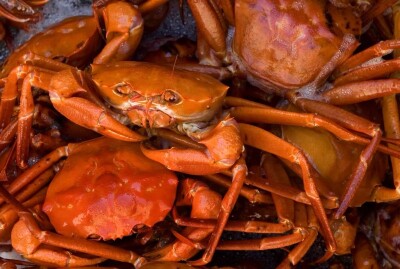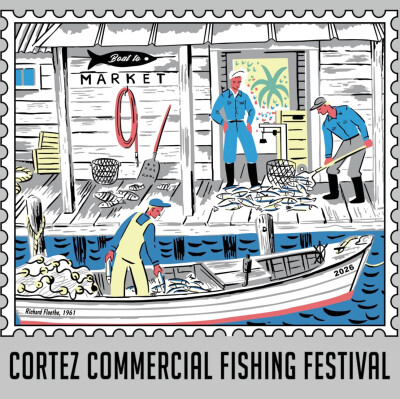As fishermen face climate change and other threats, aquaculture can offer one solution.
Maine’s wild fisheries have become very focused on the lobster industry. Farming sea scallops in Maine offers an opportunity to diversify the seafood harvesting business and increase resiliency for coastal communities built around seafood production.
The sea scallop aquaculture community is unique to Maine and composed of a variety of people and organizations, including fishermen, farmers, marine extension programs, community development financial institutions, and research and outreach foundations.
Aquaculture of sea scallops in Maine has been steadily developing for about 20 years. This type of seafood farming offers new opportunities for both new and established commercial fishermen. It is also helping coastal communities in Maine become more resilient to impacts of climate change and the loss of traditional fisheries opportunities.
Shellfish aquaculture is quite sustainable. In essence, this kind of farming includes no additives, and scallops also filter the surrounding water. Watch the video below to see scallop farming in action and find out more about the opportunities it provides.
NOAA Fisheries and Coastal Enterprises, Inc. recently visited with Marsden and Bob Brewer, operators of PenBay Farmed Scallops, and Andrew Peters, co-owner of Vertical Bay Scallops. CEI is a community development financial institution in Maine that has a long history of supporting fishing and aquaculture. Both of these aquaculture farms are examples of opportunities for marine livelihoods that shellfish farming is providing in Maine.
Marsden Brewer is a fourth-generation fisherman who still fishes for lobster. However, reduced fish stocks and an increase in commercial fishing regulations have led to a decrease in fishing opportunities. Marsden’s son, Bob, wanted a career working on the ocean; Marsden looked for other opportunities and saw the potential in sea scallop farming.
Marsden said, “In order for a waterfront to stay alive, you gotta be having something to sell. You gotta be landing in product. You gotta bring new money into your community. And this does it, same as lobsters.” Together, Marsden and Bob created their company and have reached the point of making weekly deliveries throughout Maine coastal communities. They have plans to expand production to further meet existing demand.
Andrew Peters spent years as a sternman on commercial lobster vessels while planning to pursue a license to fish lobsters on his own vessel. He learned of the extensive wait time to receive a license and the uncertainty of the process. This led Andrew to search for other ways to expand and solidify his marine career. He discovered the possibility of sea scallop farming.
“A huge reason why we picked scallops to farm over other species was the amount of support from interested parties,” said Andrew. Since founding Vertical Bay farms in 2017 with his wife Samantha, they have expanded their knowledge of farming scallops, accompanied by increasing sales.
They have applied for additional authorizations from Maine to expand production. Andrew now sees a future where sea scallop farming is profitable and will allow him to work on the ocean full-time.
Sea scallop farming will serve a specialty market within the seafood industry, allowing consumers to buy scallops at different sizes, ranging from petite to jumbo. The buyer could even have the opportunity to purchase the whole animal instead of the more commonly available sea scallop adductor muscle meats.
Part of the interest in farmed scallops relates to the traceability of the product from farm to market. This is especially important because they are promoting the freshness that comes from distribution to markets within 24 hours of harvesting. PenBay Scallops created a cookbook to help consumers, chefs, and wholesalers understand what the products are, where they come from, and how to use them.
Sea scallop farming in Maine will not compete with wild scallop harvesting volumes in New England. It will also not impact the trends for demand and prices of wild harvested sea scallops due to the differences in harvest and distribution scales, market demands, and production costs.
“A farmed scallop is not meant to compete or displace wild fishery scallops. It’s simply a different product offering,” says Hugh Cowperthwaite, CEI’s senior program director for fisheries and aquaculture.
With the support of many people and organizations in Maine for sea scallop farming, the future looks good for both farmed and wild markets to grow and expand.







